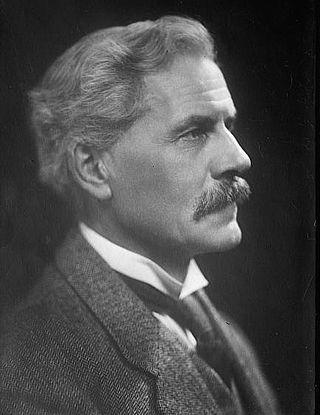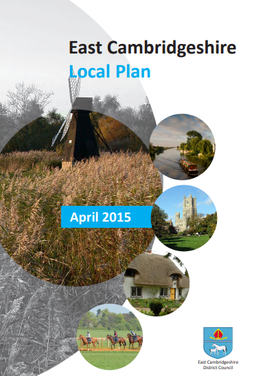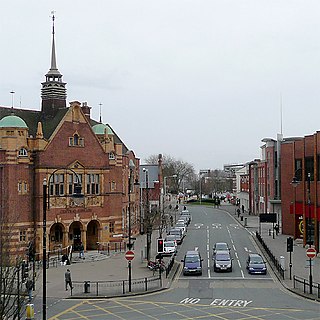Eminent domain, land acquisition, compulsory purchase, resumption, resumption/compulsory acquisition, or expropriation is the power to take private property for public use. It does not include the power to take and transfer ownership of private property from one property owner to another private property owner without a valid public purpose. This power can be legislatively delegated by the state to municipalities, government subdivisions, or even to private persons or corporations, when they are authorized to exercise the functions of public character.

Planning permission in the United Kingdom is the planning permission required in the United Kingdom in order to be allowed to build on land, or change the use of land or buildings. Within the UK the occupier of any land or building will need title to that land or building, but will also need "planning title" or planning permission. Planning title was granted for all pre-existing uses and buildings by the Town and Country Planning Act 1947, which came into effect on 1 July 1948. Since that date any new "development" has required planning permission.

The Local Government (Ireland) Act 1898 was an Act of the Parliament of the United Kingdom of Great Britain and Ireland that established a system of local government in Ireland similar to that already created for England, Wales and Scotland by legislation in 1888 and 1889. The Act effectively ended landlord control of local government in Ireland.
A compulsory purchase order is a legal function in the United Kingdom and Ireland that allows certain bodies to obtain land or property without the consent of the owner. It may be enforced if a proposed development is considered one for public betterment; for example, when building motorways where a landowner does not want to sell. Similarly, if town councils wish to develop a town centre, they may issue compulsory purchase orders. CPOs can also be used to acquire historic buildings in order to preserve them from neglect.
As a legal term, ground rent specifically refers to regular payments made by a holder of a leasehold property to the freeholder or a superior leaseholder, as required under a lease. In this sense, a ground rent is created when a freehold piece of land is sold on a long lease or leases. The ground rent provides an income for the landowner. In economics, ground rent is a form of economic rent meaning all value accruing to titleholders as a result of the exclusive ownership of title privilege to location.

The second MacDonald ministry was formed by Ramsay MacDonald on his reappointment as prime minister of the United Kingdom by King George V on 5 June 1929. It was only the second time the Labour Party had formed a government; the first MacDonald ministry held office in 1924.
Town and country planning in the United Kingdom is the part of English land law which concerns land use planning. Its goal is to ensure sustainable economic development and a better environment. Each country of the United Kingdom has its own planning system that is responsible for town and country planning, which outside of England is devolved to the Northern Ireland Assembly, the Scottish Parliament and the Senedd.

Harold Wilson was appointed Prime Minister of the United Kingdom by Queen Elizabeth II on 16 October 1964 and formed the first Wilson ministry, a Labour government, which held office with a thin majority between 1964 and 1966. In an attempt to gain a workable majority in the House of Commons, Wilson called a new election for 31 March 1966, after which he formed the second Wilson ministry, a government which held office for four years until 1970.
Forty-shilling freeholders were those who had the parliamentary franchise to vote by virtue of possessing freehold property, or lands held directly of the king, of an annual rent of at least forty shillings, clear of all charges.

The Town and Country Planning Act 1990 is an act of the Parliament of the United Kingdom regulating the development of land in England and Wales. It is a central part of English land law in that it concerns town and country planning in the United Kingdom. Repealed in parts by the Planning and Compensation Act 1991, it is now also complemented by the Planning and Compulsory Purchase Act 2004.

A development plan sets out a local authority's policies and proposals for land use in their area. The term is usually used in the United Kingdom. A local plan is one type of development plan. The development plan guides and shapes day-to-day decisions as to whether or not planning permission should be granted, under the system known as development control. In order to ensure that these decisions are rational and consistent, they must be considered against the development plan adopted by the authority, after public consultation and having proper regard for other material factors.
Development Management, formerly known as planning control, or development control, is the element of the United Kingdom's system of town and country planning through which local government or the Secretary of State, regulates land use and new building, i.e. development. It relies on a "plan-led system" whereby development plans are produced, involving various stages of public consultation prior to being adopted. Subsequently, development that requires planning permission, which is granted or refused with reference to the development plan as the starting point, then other material considerations are taken into account. The term "development management" is often abbreviated to DM.
Planning gains are ways that local authorities in the United Kingdom can secure additional public benefits from developers, during the granting of planning permission.
The history of rent control in England and Wales is a part of English land law concerning the development of rent regulation in England and Wales. Controlling the prices that landlords could make their tenants pay formed the main element of rent regulation, and was in place from 1915 until its abolition by the Housing Act 1988.
Compulsory purchase is the power to purchase rights over an estate in English land law, or to buy that estate outright, without the current owner's consent. In England and Wales, Parliament has granted several different kinds of compulsory purchase power, which are exercisable by various bodies in various situations. Such powers are meant to be used "for the public benefit". This expression is interpreted broadly.
Land bonds are financial bonds used in many countries to satisfy, in whole or in part, the compensation payable by the government for compulsory acquisition of any land from private landowners.

The Land Compensation Act 1961 is an Act of Parliament of the United Kingdom, which concerns English land law and compulsory purchase. The majority of this Act was brought into force on 1 August 1961, with Part V s.42 coming into force on 22 July 1961.

R v Wolverhampton CC [2010] UKSC 20 is an English public law case involving invalid considerations of a local council in making a compulsory purchase order. Judicial review was available and upheld in this case on one or more of four available grounds, namely: error of law, irrationality, serious procedural irregularity, and action for an improper purpose.
Indian Railway Stations Development Corporation Limited (IRSDC) was a special purpose vehicle owned by the Rail Land Development Authority (RLDA), Ircon International and RITES. All three companies are owned by the Indian Ministry of Railways. IRSDC was incorporated on 12 April 2012.

Compulsory purchase are powers to obtain land in Scotland that were traditionally available to certain public bodies in Scots law. Scots law classifies compulsory purchase as an involuntary transfer of land, as the owner of the corporeal heritable property (land) does not consent to the transfer of ownership.







